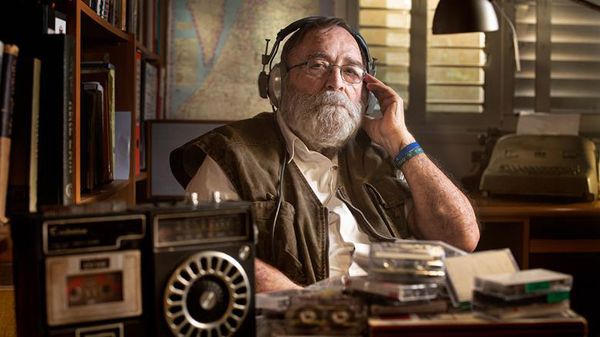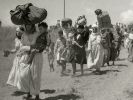Eye For Film >> Movies >> Tantura (2022) Film Review
Tantura
Reviewed by: Amber Wilkinson

Can the story of a tiny Palestinian village offer an insight into wider issues regarding the importance of recording both positive and negative elements of history, and the insidious nature of denial? Alon Schwarz certainly makes a good case for it in this meticulously detailed documentary. Tantura – the village of the film’s title – was one of hundreds that was depopulated in the conflict which the Israelis refer to as the War of Independence and which Palestinians call Al Nakba (The Catastrophe) that began in 1948 with the creation of the state of Israel. But the word “depopulation” tells you the what without telling you the how.
The allegation is that during the spring of that year, war crimes occurred in Tantura, including the massacre of citizens and their burial in a mass grave. Schwarz uses recordings by former academic Teddy Katz – now in his seventies with failing health – taken in the late 90s with soldiers from the Alexandroni Brigade and former Tantura residents as a jumping off point to not only try to discern the truth of the situation but also the nature of memory, recollection and the things that people would, perhaps, rather forget.

The film is built of layers. In one lies the original recorded testimony – 140 hours that would go on to, first, earn Katz a good mark for his resulting paper but, later, see him branded a liar in court, pressured into retraction and hounded out of academia. Schwarz uses the original recordings as a foundation on which to build fresh interviews with some of the former soldiers who are still with us – showing some listening and reacting to old interviews, while others tell their stories anew. The result is often quite shocking and no doubt going to see fresh controversy spring up around not just Tantura but the period in general. “I’m fed up of remembering bad things,” one person says, a sentiment that seems to be held, even though it may be unspoken, by many here. As we hear the soldiers on the tapes talk about what the did or didn’t do, archive footage helps to create a picture of Tantura at the time.
“If you killed, you did a good thing,” observes one soldier, while another asks, “Why would I tell her [my wife] I was a murderer?”. Others deny anything bad occurred or skirt around the issue, while all the time Schwarz nudges us towards the bigger issue concerning the degree to which history is written by “the victors”, which while no doubt a symptom of almost every nation state in the world is, one contributor suggests, further fuelled by a desire by the state of Israel to retain the highest of high moral ground. Quantifiably, as outlined by this film, history in its hands has, at the very least, faced redaction and elision.
Although Schwarz turns his attentions to big elements, such as the potential site of a mass grave under a car park in current day Tantura – something that is likely to remain a permanent contentious issue in the area – it’s the smaller details that really ring out. A sign on a wall reading “coexistence” prompting us to think about the problems generated by unwillingness to confront unpalatable truths, or the declaration – regarding a potential monument to Palestinians who lost their lives – that, “If it’s important to them, it harms me”. This is a stripped back affair in terms of craft, relying mainly on talking heads and footage of tapes turning or being clicked on and off but though this makes it dense to watch, the detail holds attention, as the film itself puts it, “Truth has its own power” – although even all these years on, it seems it is still very hard to come by.
Reviewed on: 21 Jan 2022














